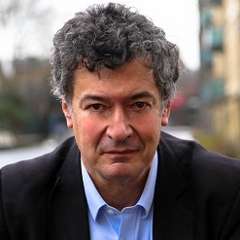Michael Ierace's piano recital last night in Linton, Cambridgeshire was revelatory. That adjective is perhaps devalued through overuse, but this young Australian pianist's playing does indeeed reveal the strong, the beautiful, and the unexpected in music one might believe one already knows.
When Ierace, from Adelaide, won a Royal College of Music student competition as a postgraduate in 2008, a jury member told me that Ierace's playing of the Beethoven Bagatelles had made him want to explore the pieces afresh.
In the past three years Ierace has been steadily picking up prizes in competitions. He won the Royal Overseas League piano final in 2008, and has just carried off their accompanists' award. He was a prizewinner at the Haverhill International soloists competition. He currently has a fellowship in accompaniment at the Royal College.
His playing has become more assured and powerful in the past three years, and his platform manner is less unassuming than it was. Last night's solo recital at Linton Music Society in Cambridgeshire contained formidable - and close to faultless - displays of virtuosity, with a big sound which would have carried to the back of the larger halls for which Ierace is now ready. Among the fireworks were astonishing, quieter moments, when his playing drew the listener deep into the music itself and revealed its essence.
In Schumann's Kinderszenen, played before the interval, the softly intense and slow ending of Der Dichter Spricht (The Poet Speaks) had the audience spellbound. On the page, this passage is just a series of minims, shaped in a diminuendo down from pianissimo. In Ierace's hands, the line of narrative was sustained, the poet was speaking from the very depths of the soul.
Ierace had also made a very strong case indeed for the seldom-played B minor sonata Op 40. No 2 by Clementi, with which he had opened the recital. Classically poised, the skittering runs seemingly effortless, this was a performance of true character. While in Chopin's Bb minor scherzo, he found that perfect shape for the three-four bar, think Rubinstein or Zimerman, and the A major episode was sung with longing and poignant lyricism.
Brahms' Handel Variations and Fugue, which formed the second half, are a severe test for any pianist. Ierace passed it with flying colours, but what stayed in the mind amid the fireworks was the darkly chromatic variation 20, perfectly contoured, and played in such a way that makes this listener will now always want to look forward to that moment.
Two Gershwin encores rounded off the evening happily. The Man I Love had rhythmic lilt and swing, and Ierace's own version of Embraceable You in the manner of Gershwin's sister's father-in-law Godowsky, was a party trick to make the jaw drop. Like Godowsky, Ierace can prove that he is a "pianist for pianists." But he is also a pianist capable of bringing any listener close and deep into the music.


